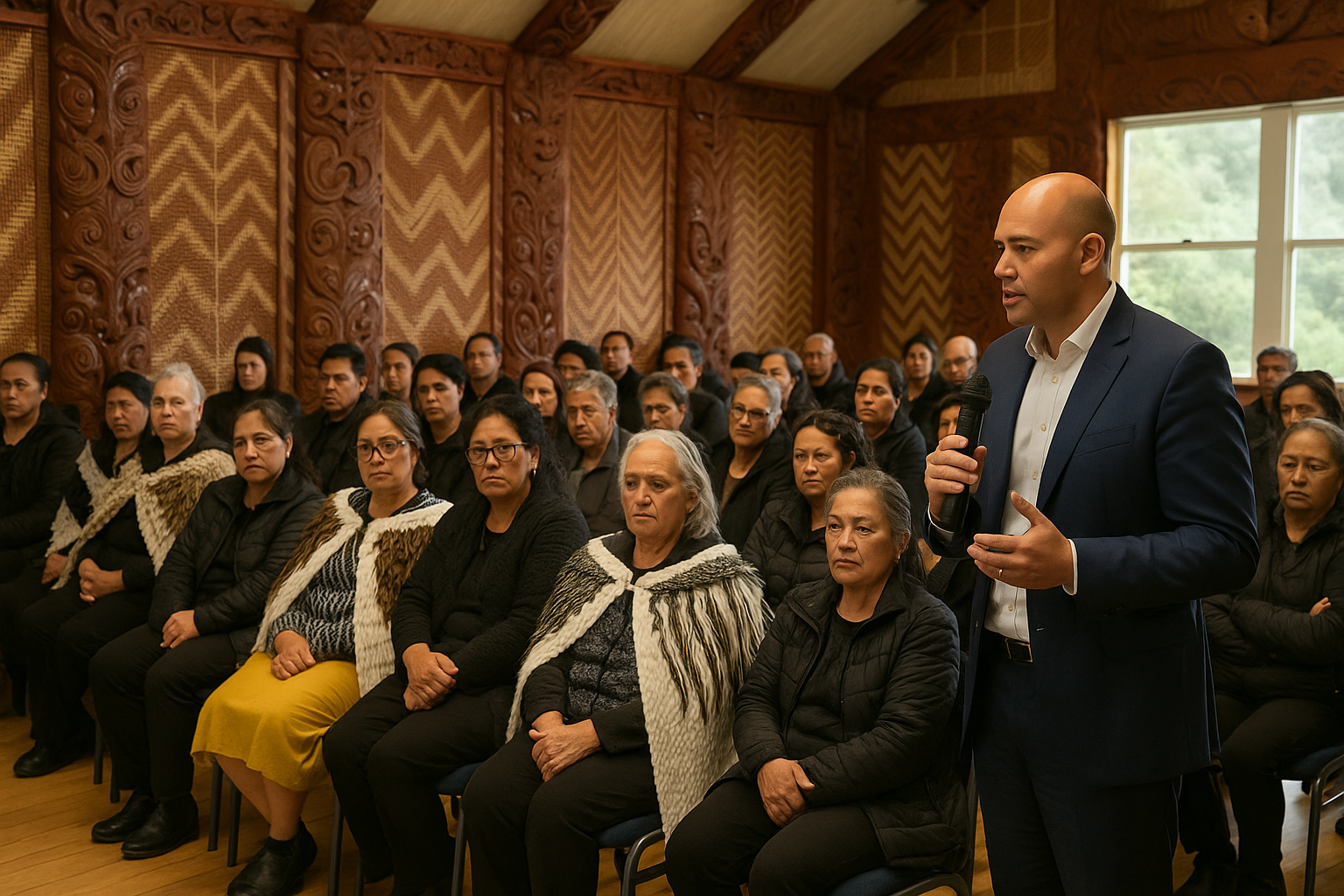Whānau Ora Reform Expands with Four New Agencies to Boost Support Nationwide
At a ceremonial launch held at Hongoeka Marae in Plimmerton, Minister Potaka acknowledged the historic importance of Whānau Ora, founded in 2010 under the leadership of Dame Tariana Turia.

- Country:
- Palau
In a transformative move aimed at elevating the effectiveness of whānau-centred support services, the New Zealand Government is introducing four new Whānau Ora commissioning agencies from 1 July 2025. The announcement, made by Whānau Ora Minister Tama Potaka, signifies a renewed commitment to community-driven support underpinned by data and regional equity.
The new commissioning agencies — Rangitāmiro, Te Rūnanga o Toa Rangatira, Te Tauraki (a subsidiary of Te Rūnanga o Ngāi Tahu), and The Cause Collective (operating as The Tātou Collective) — will be responsible for delivering tailored support services through local providers across different regions of Aotearoa, based on identified need and community insights.
A Legacy Continued and a Future Strengthened
At a ceremonial launch held at Hongoeka Marae in Plimmerton, Minister Potaka acknowledged the historic importance of Whānau Ora, founded in 2010 under the leadership of Dame Tariana Turia.
“We acknowledge and celebrate the success of Whānau Ora and the great legacy of the late Kahurangi Dame Tariana Turia,” said Potaka. “It’s now time to strengthen that foundation through sharper regional focus and strategic investment in data, services, and workforce development.”
The model, which takes a holistic approach to family well-being by empowering whānau to determine their own goals and access coordinated services, has become a cornerstone of culturally responsive, community-based care in New Zealand.
Strategic Investment for Long-Term Impact
The new framework is backed by a substantial government investment of $179 million for the 2025/26 fiscal year and beyond. Funding will now be allocated based on the Census 2023 Deprivation Index, ensuring that resources are directed to regions facing the highest levels of need.
This targeted funding strategy represents a significant shift towards ensuring equity in service provision and deeper impact where it is needed most.
The Four New Commissioning Agencies: Regional Focus and Responsibilities
Each agency brings existing networks, experience, and understanding of their communities to their respective regions:
-
Region 1 (North Island to Taupō): Rangitāmiro, a consortium including the National Hauora Coalition, Te Tiratū, and Ngaa Pou Hauora o Tāmaki Makaurau.
-
Region 2 (South of Taupō to East Coast): Te Rūnanga o Toa Rangatira, with strong iwi-led networks extending across lower central North Island and the eastern coast.
-
Region 3 (South Island): Te Tauraki Ltd, a subsidiary of Te Rūnanga o Ngāi Tahu, leveraging deep South Island iwi connections.
-
Region 4 (Nationwide, Pacific Peoples): The Cause Collective, operating as The Tātou Collective, will deliver specialised services with a focus on methodologies that support Pacific communities across the country.
Key Goals: Equity, Transparency, and Evidence-Based Practice
The expanded Whānau Ora model introduces multiple innovations to strengthen accountability and effectiveness:
-
Navigator Workforce Development: Investment in upskilling and retaining kaimahi (navigators) who directly support whānau, helping them identify aspirations and coordinate wraparound services.
-
Community-Led Investment Boards: Local input will guide decision-making, ensuring investments align with regional and cultural contexts.
-
Enhanced Data Collection: Services will now include more rigorous data capture and outcomes reporting, enabling clearer assessments of impact and areas for improvement.
-
Integration with National Data Systems: Anonymous Whānau Ora data will be linked to Stats NZ’s Integrated Data Infrastructure (IDI), enriching the evidence base for social policy and investment.
“More consistent data collection will allow us to better measure the long-term, life-changing impacts of Whānau Ora,” Potaka noted. “This data-driven approach is central to our social investment strategy, helping us achieve better outcomes for all New Zealanders.”
Community Readiness and Vision
Each new agency already has networks and provider arrangements in place to begin work immediately on 1 July. From grassroots navigators to strategic planning boards, the entire commissioning structure is geared toward prompt, transparent, and effective delivery.
The renewed Whānau Ora framework is poised to serve as a model for how government, iwi, and community-based organisations can work in partnership to achieve holistic, people-centred progress — especially for those experiencing the deepest levels of deprivation.
“These iwi and agencies know their communities and are ready to walk alongside whānau to achieve their aspirations,” Minister Potaka concluded.
With its bold, evidence-informed direction, the 2025 expansion of Whānau Ora promises to deepen the impact of one of New Zealand’s most culturally resonant and transformative social support models.










